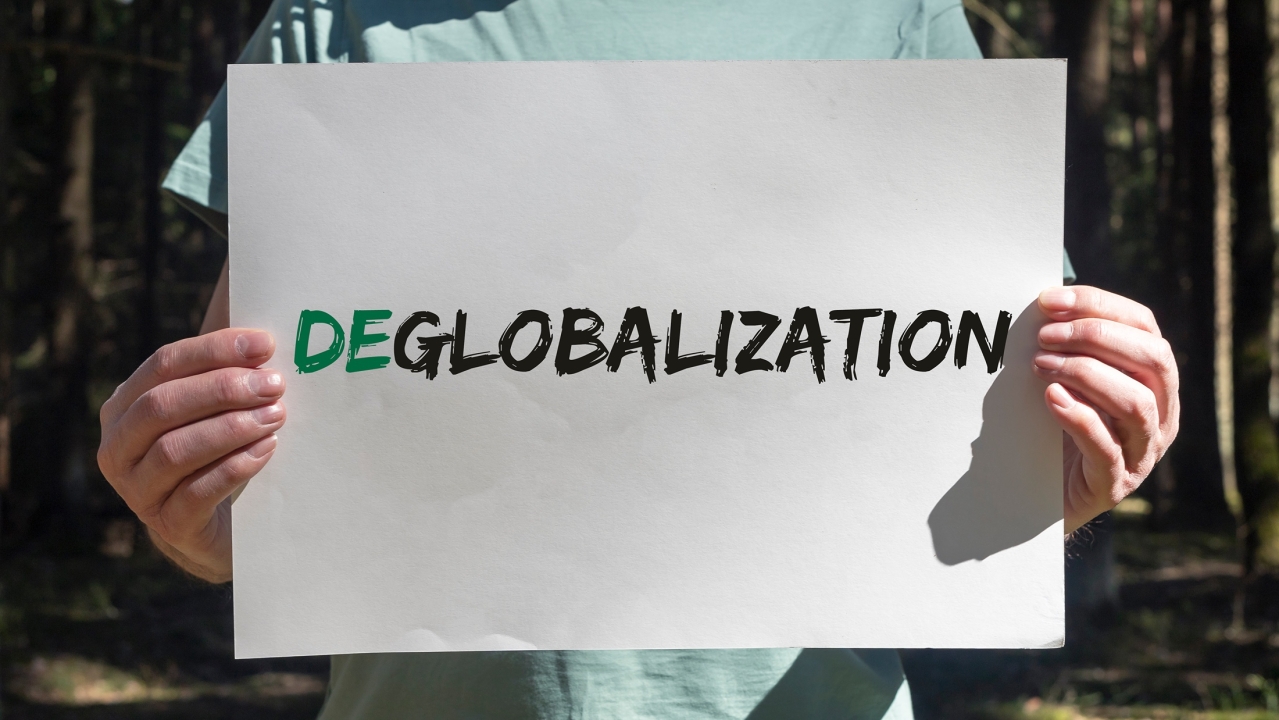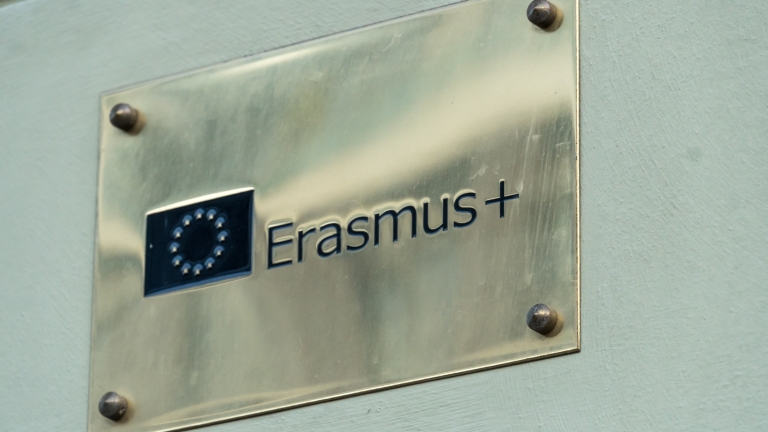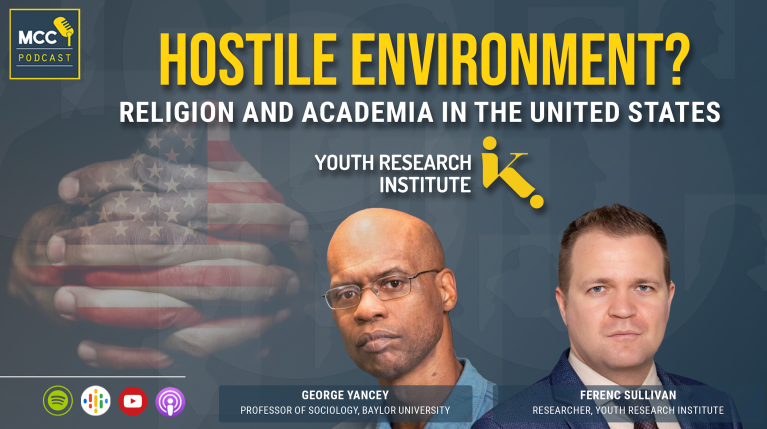A change that can hardly be explained by evolution
This radical self-denial is surprising from an evolutionary point of view, since throughout the history and evolution of mankind, every living creature and human community has had to fight for self-assertion. For how long can we afford to be forgetful about this? This question is all the more dramatic because other cultures and powers - be it Islam, China's Darwinism or Russia's nationalism - take advantage of this attitude and, in fact, radically escalate their self-assertion.
The authoritarian regimes have used globalisation much more to strengthen their power over their own citizens and also in relation to the West. The West, as we call the European Union and the states of North America, the Pacific and some East Asian states, represents less than ten percent of the world's population. There is less and less democracy, but more and more authoritarianism, Islamism and, in China, totalitarianism.
Globalism is the new worldview
Under such circumstances, a large part of the Western elite seems to lose its sense of reality. Morover, they seem to forget the basic limits, the limits to possibilities and even the recognition of the steps that need to be taken.
One cannot argue against this new globalism with arguments of reason, since it is clearly a pseudo-religious longing. This also seems to follow a historical pattern, because as belief in God wanes, belief in political gods increases. In the Western world, the Christian faith is at an historic low. As in the law of conservation of energy, the longings in people do not vanish, but are converted.
It is no coincidence that globalism has taken off from American universities, with students from mostly affluent families finding global humanitarianism a redemptive farewell to their sins. “Global thinking” claims the right to view the world comprehensively. For them, any opposition or disagreement is unacceptable, so there is no distinction of nuances. Particular vested interests are banned and branded as Nazi or even racist.
Overburdening one's own culture
Globalism threatens to destroy local assets - including migration to Europe, where the continent's public welfare system is a magnet for the uneducated masses, overburdening nation-based welfare states and even its own culture. The downside of deliberately breaking down borders became apparent when the coronavirus went from an infection in China to a pandemic. The recent shortages in the pharmaceutical market even in economic terms are a reminder of how utopian globalism is.
With the war in Ukraine and the subsequent Western sanctions war against Russia, the “one world” has been shattered against reality, which explains the less-than-diplomatic anger with which (in the words of German Foreign Minister Annalena Baerbock) they want to “destroy Russia”. “Feminist foreign policy” does not seem to be working in Afghanistan neither. The Taliban government accepted the 200 million euros that Minister Baerbock allocated to support women and then excluded women from education and higher education.
“Global governance” is expressed in such internal agreements as the global pacts on migration, climate protection and biodiversity. Those who keep to the agreements are disadvantaged in the competition. The fine imposed on the wealthier countries is important for the states of the “Global South”: Western globalism is only appreciated in other cultures if it can be used to their advantage.
Differentiated protectionism
The principle of free trade cost advantages will continue to apply. The question of what should and should not be exposed to competition would, however, have to be discussed in the light of local and national interests.
The forces that are often labelled “right-wing” are in fact protectionist and want to preserve what they own. The more these forces are marginalised, the greater the risk of their radicalisation. They should therefore be involved in the debate on the local and global middle ground between globalism and protectionism.
The major conflicts of our time are no longer between left and right, but between globalists and protectionists. The latter demand, among other things, the decentralisation of the supply of essential medicines or food, and greater protection for the operation of medium-sized enterprises. It is the political challenge of the future to explore the local and global middle ground.
The return to controllable borders would be a precondition for less centralised solutions. A multipolar world order could represent a middle ground between utopian globalism and regressive nationalism. In this world order, the most powerful actors should mutually respect each other's spheres of influence. Multipolar order entails respect for borders and spheres of influence, for militarily neutral buffer zones such as Finland and formerly Ukraine, but above all it means recognising one's own limits and potential.
The restoration of culture and the de-ideologization of politics
The legitimate but insufficient anger of outraged citizens threatens to fail in the absence of a commitment to the faith in God and their own positive stories. Supporters of both Trump and Brexit have only responded to a part of the problems related to globalisation and have limited themselves to partial responses. The new cultural revolution would presumably not primarily aim at restoring the past (in the spirit of "Take back Control" or "Make America Great Again"), but rather use the better elements of the past to reshape the future.
The West, once called the "Occident", cannot renounce the Christian wisdom about human nature, the rules of St Benedict and the Christian social teachings. With the separation of spiritual and secular categories, its tendency and willingness to secularise, Christianity has laid the foundations for its logic to unfold in other functional systems.
It was the basis for the dynamic development of the Western world and this worldwide momentum laid the foundations for the globalisation processes that followed. The limits of Christianity, however, also mark the limits of the West's potential for globalisation, and these are particularly affecting the West, which relativizes culture.
Ultimately, our ability to restore European culture will be the measure of whether we are equipped to respond to emerging threats. In the field of political culture, there are at least signs of a return to reality. The mutual complementarity of intellectual and material, cultural and civilizational forces is a fundamental characteristic of our culture. In social terms, the starting point would be the restoration of a citizenhood ensuring a typical balance of rights and duties.
Old ideologies are beginning to redefine themselves in the paradigm of necessary self-assertion with self-limitation. If, for example, the Danish social democrats abolish abused asylum regulations in order to save the welfare state, and if more and more liberals want to defend freedoms against the Islamic law, then in this new necessity of forced self-assertion, the former left will be joined by the right, the liberals by the conservatives.
Self-limitation through decentralization
Antonio Gramsci advised the political left to achieve first cultural hegemony and then gain power. But today, on the contrary, the task is to regain civic hegemony and to find the way to restore the West after many deconstructions of ourselves and our own particularities.
Strengthening decentralisation would be the necessary counterpoint to a globalised world. These include, for example, restoring family life, greater protection of the European economic area and building a work-based social system. Our priority, however, must be to rehabilitate our own and present interests against the ultimately megalomaniac futur-oriented ideas of salvation.









